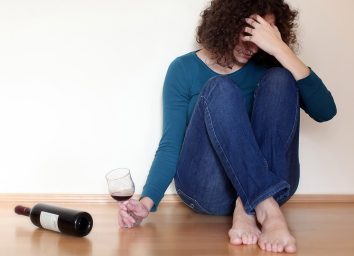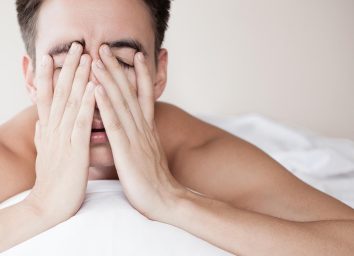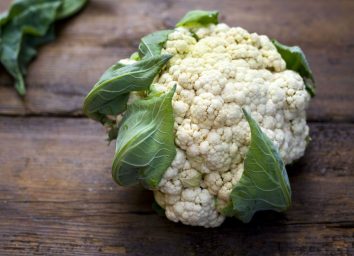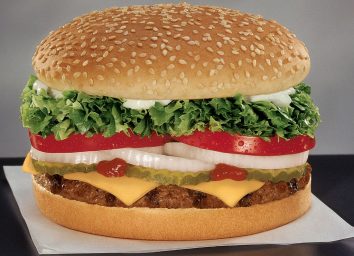This Is Actually Why You Get a Hangover
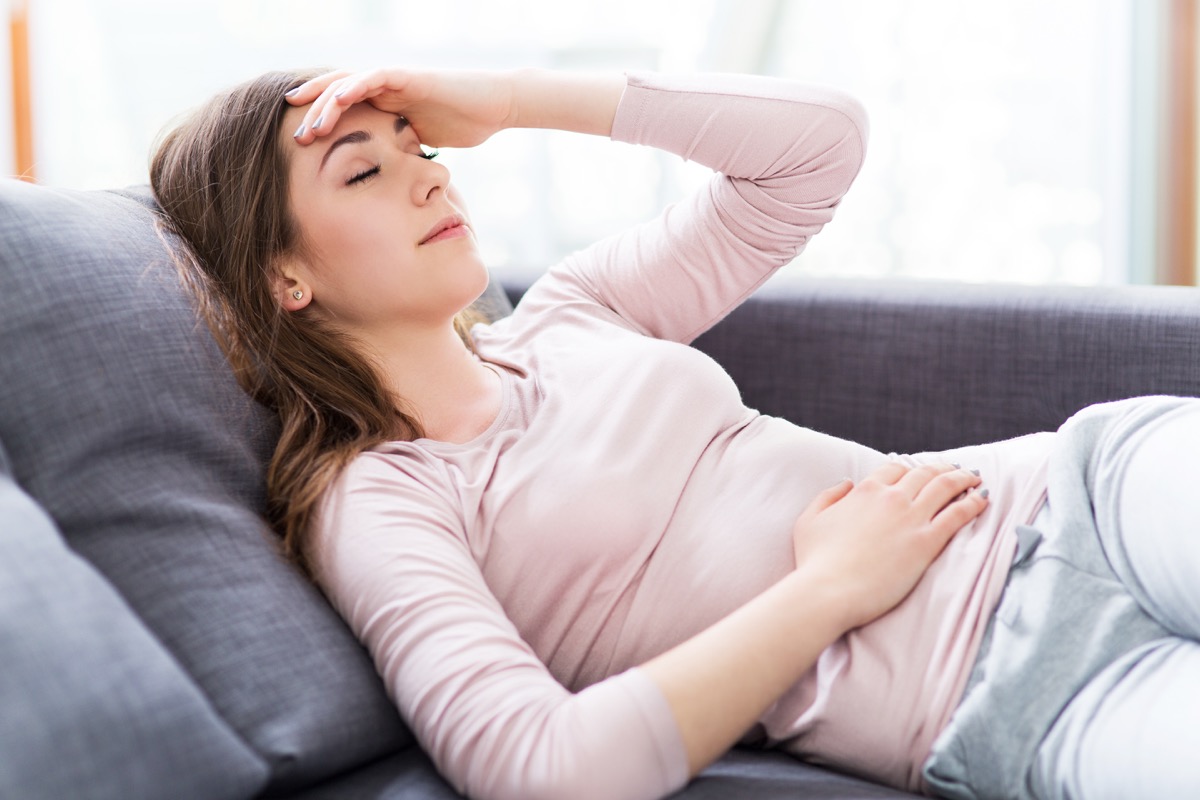
If you've ever had an alcoholic beverage, there's a good chance you've experienced a hangover. And they're not fun. What starts as a night out with friends can quickly turn into a morning of regret as you're left with a massive headache and serious case of nausea. But why do you get a hangover and what exactly causes those symptoms to strike?
People have many different theories as to why their hangovers come about. Some say it's always a certain type of alcohol (which an Alcoholism: Clinical and Experimental Research study found does make a difference), and others say it's age-related.
Case in point? The amount of alcohol you could drink in your early twenties without a hangover is a far cry from today. While there might not be one science-backed reason, there are certainly a handful of expert-backed factors that always seem to bring them on. We spoke to Lisa Samuels, RD, founder of The Happie House, to uncover the scientific reasons behind why you get a hanger.
So, Why Do You Get a Hangover?
According to Samuels, there are three main reasons why people get hangovers.
1. Alcohol Dehydrates You
Alcohol pulls water from the body and promotes dehydration, according to the Cleveland Clinic. On top of that, it's a diuretic, making you pee more often. Those two problems combined with not drinking enough water while you're drinking alcoholic beverages is basically a recipe for disaster, as Samuels says being dehydrated is one of the main causes of hangover symptoms.
2. You Experience Fluctuations in Blood Sugar
Drinking alcohol can cause fluctuations in your blood sugar, and that could explain why it leaves you feeling less than stellar the next day.
"Upon waking up in the morning after a night of heavy drinking, you might find that you feel shaky, weak, groggy, and moody," Samuels says. "This is due to your blood sugar dropping. Alcohol has a high sugar content, so consuming so much of it at once triggers insulin to be released into the blood."
3. Alcohol Messes With Your Sleep Cycle
Feeling super low-energy and totally out of it after a night of drinking? Blame the alcohol for your lack of sleep.
"Alcohol can mess with your sleep cycles, which contributes to feeling groggy the next day," Samuels says. "It prevents you from reaching the REM stages of sleep that we really need to feel well rested. You may also find yourself waking up frequently throughout the night."
How to Prevent Hangovers from Ruining Your Day
Now that you know some surefire reasons behind your hangovers, you should also know how to put an end to them for good. These are the best ways to ensure you feel your best after drinking.
1. Never, Ever Drink on an Empty Stomach
If you haven't eaten before you grab a drink, prepare for the alcohol to hit you in the worst way. Making sure your stomach is filled with something nutritious before sipping, on the other hand, can help prevent hangover symptoms in the first place. "Having food in your stomach helps to slow the absorption of alcohol so that it's not all hitting your system at once," Samuels says. Why not try one of these foods to eat before drinking to prevent a hangover?
2. Become Best Friends With Water
You know drinking alcohol can cause dehydration, and that's why your water intake is so important in preventing hangovers. To make sure you stay headache-free, there's a simple rule to follow.
"Drink a glass of water between alcoholic beverages to keep yourself from getting too dehydrated since dehydration is one of the main causes of your hangover symptoms," Samuels says. "Plus, it helps you drink less."
3. Stop Drinking Earlier in the Evening
There's a major perk to not staying out all night drinking: there's less chance of feeling horrible afterward. "If you stop drinking earlier in the evening, the body has more of a chance to process the alcohol, which will lessen the symptoms of the hangover the next day," Samuels says.
4. Don't Waste Your Money on Hangover Cures
As nice as it would be to just pop one of those hangover cure tablets after a night of drinking to get rid of all your symptoms, don't waste your money—there's no proof they actually work. Instead, take care of your health the right way.
"There are so many different forms of hangover pills on the market right now that it's hard to say whether or not they actually work. Many of the available pills contain aspirin, caffeine, B vitamins, stomach soothers, and other ingredients meant to mask the symptoms of a hangover," Samuels says.
"The best hangover cure advice would be to drink in moderation, stay hydrated, eat a balanced meal, and—if extremely necessary—turn to your standard OTC painkiller for headaches and other pain you may be experiencing."
